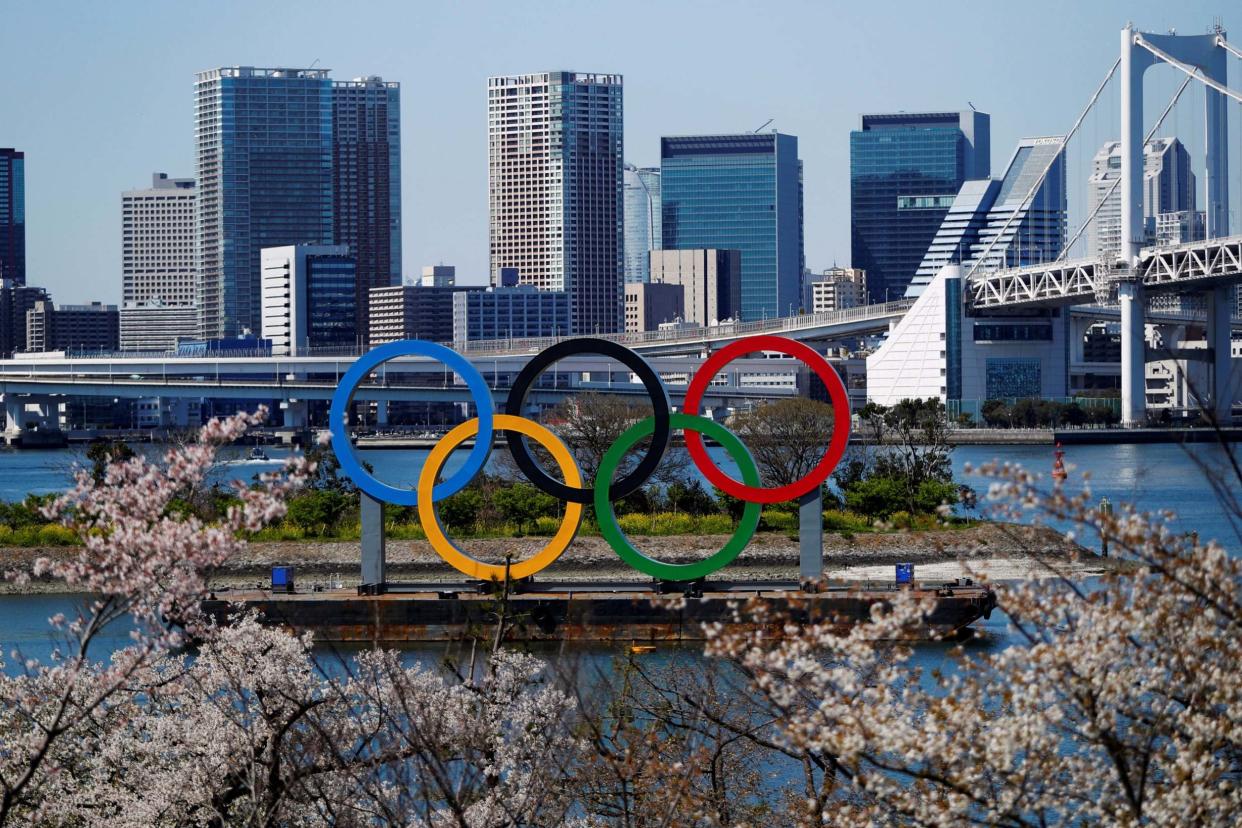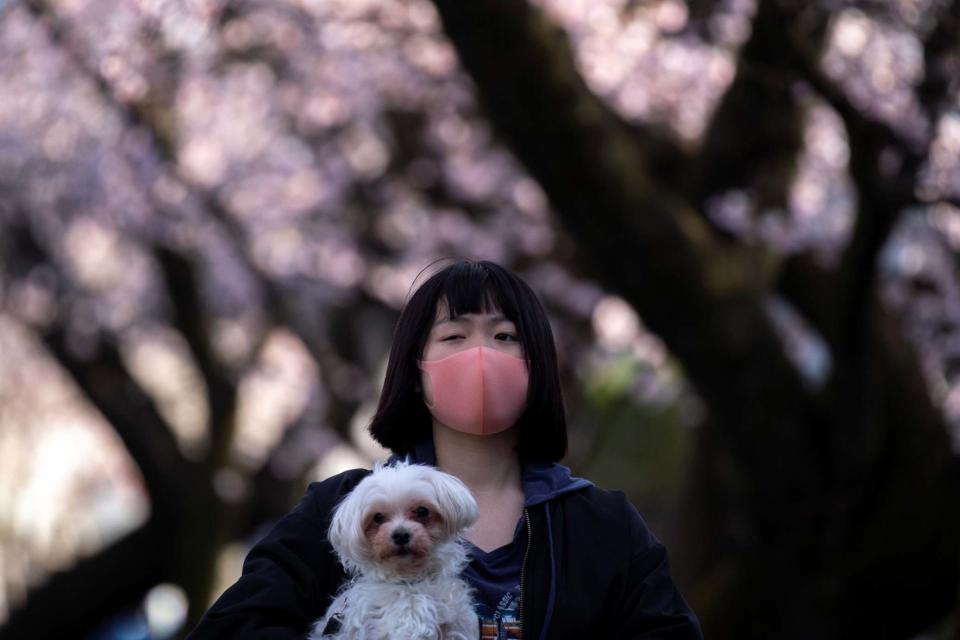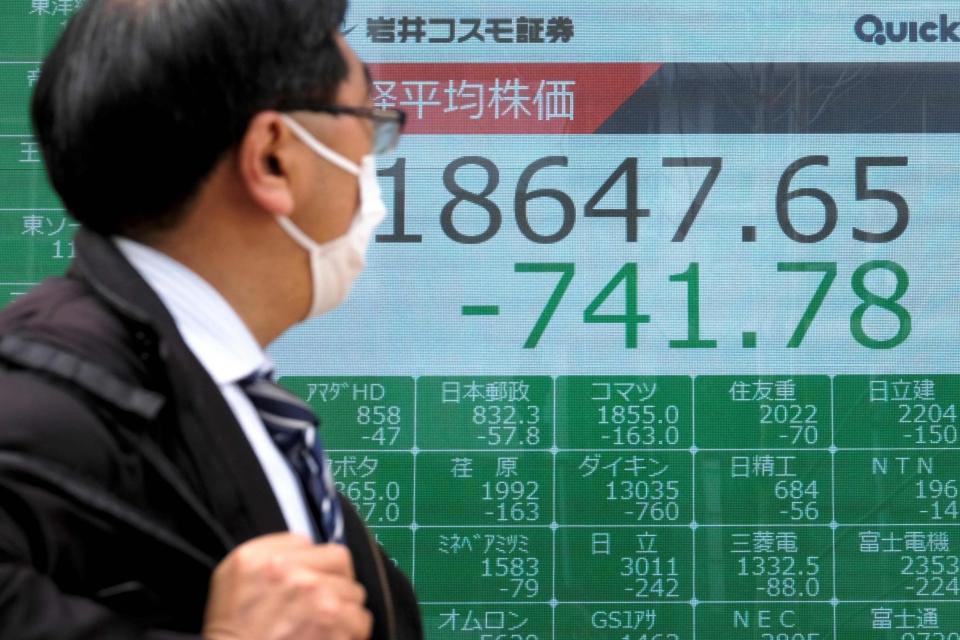Japan declares state of emergency over coronavirus outbreak

Japan’s Prime Minister Shinzo Abe has declared a month-long state of emergency for Tokyo and six other prefectures as the country fights the spread of coronavirus.
Mr Abe confirmed there would be no European-style lockdowns, and the state of emergency will only allow Tokyo governor Yuriko Koike and heads of six other designated prefectures, to do more to reinforce calls for social distancing.
Virtually all of those measures will be requests that cannot be enforced with penalties for violations.
Mr Abe said he planned to keep the state of emergency in place for a month, until May 6.

The announcement follows rising numbers of coronavirus cases in Tokyo, including consecutive rises exceeding 100 over the weekend.
By Monday, there were 1,116 confirmed cases in the metropolitan region of 14 million people.
Japan now has 3,906 confirmed cases nationwide, as well as 712 from a cruise ship quarantined at Yokohama port near Tokyo, with 91 deaths.
READ MORE
Mr Abe has faced pressure to declare a state of emergency to ensure people comply with social distancing measures. The country has been experiencing rising cases, where there was no known contact with another patient, leading experts to worry that the sudden explosion in infections could overwhelm healthcare systems
The governor of Tokyo, Yuriko Koike welcomed the emergency measures, adding that because they are legally valid and involve co-ordinated action with the central government, she expects they “will prevail widely and deeply among the people”.
Mr Abe’s government is thought to have delayed declaring a state of emergency due to fear of how it might hurt the economy.
The public are also wary because of Mr Abe's ultra-conservative ruling party, who has pushed for a constitutional amendment to include a state of emergency clause for disaster and wartime contingencies; the memories of repression and disaster enacted from fascist governments before and during the Second World War still linger.
Now, as fear of the pandemic has grown, the public alongside medical experts have pushed for more drastic action.
However, Mr Abe has repeatedly said a hard lockdown, like in Italy and France where nobody is supposed to be outside for non-essential reasons, is not on the cards for Japan.
Last week he said: “We can only make a request, but it’s different from lockdowns enforced in France and other countries."
Citizens will be requested to stay at home, whilst schools will be temporarily closed. The new measures also include the closure of non-essential businesses and stores, with events and exhibits to be postponed.
Violators cannot be penalised unless they fail to comply with orders on providing or storing emergency relief goods, such as surgical masks and medical equipment.
But the state of emergency could significantly limit the movement of people around and out of the city.
Takahide Kiuchi, an economist at Nomura Research Institute, said in a recent report that a state of emergency could cause consumer spending to fall nearly 2.5 trillion yen (£18.6 billion), leading to a 0.4% drop in Japan’s annual GDP.
The government enacted a special law last month enabling Mr Abe to declare a state of emergency, but it's proven divisive given concerns over civil rights.

Less than two weeks ago Ms Koike warned that coronavirus cases were accelerating in the Japanese capital, whereas it had previously been thought Japan had curbed the number of infections.
The former strategy was to closely monitor clusters of cases and keep them under control, rather than conducting massive testing as was done in neighbouring South Korea.
This appears to be failing given the sharp rise in cases not linked to previous known infections, and there are also now concerns over shortages of beds and ICU units for patients with severe symptoms.
Osamu Nishida, chairman of the Japanese Society of Intensive Care Medicine, noted that Japan has only five ICU beds per 100,000 people, compared with 12 in Italy and about 30 in Germany.
Last Friday Mr Abe said the central government has secured 25,000 beds and 8,000 ventilators.
The health ministry also eased hospitalisation requirements for patients with no symptoms or only slight illnesses, allowing their transfer to hotels and other designated lodgings where they can be monitored by medical workers, which is hoped will free up beds for the severely ill and ease the strain on the medical system.

 Yahoo News
Yahoo News 
